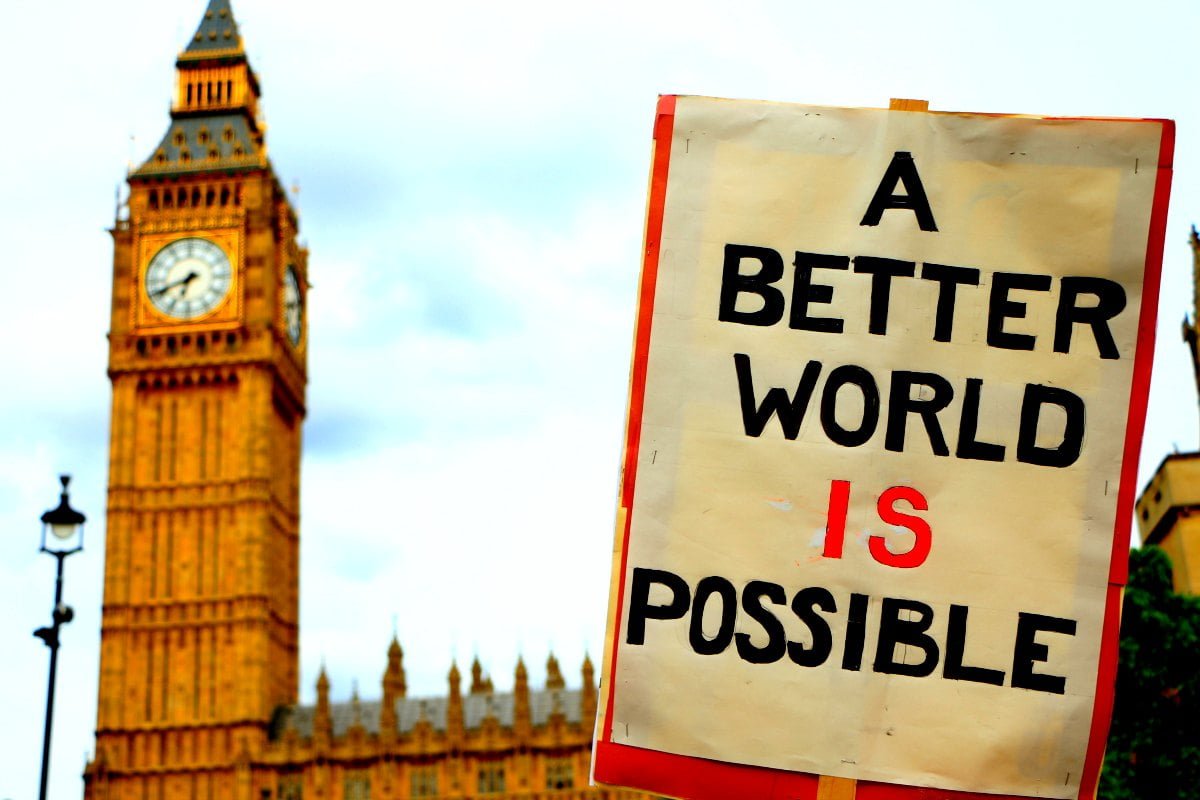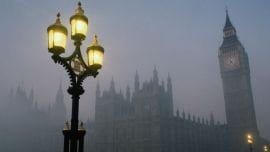Pat McDonald reviews Martin Williams’ first publication, Parliament Ltd – an excellent insight into the murky depths of political and institutional corruption that brilliantly exposes the true nature of what goes on behind Westminster walls.
Journalist Martin Williams’ first publication in May 2016, Parliament Ltd, is an excellent insight into the murky depths of political and institutional corruption that brilliantly exposes the true nature of what goes on behind Westminster walls.
Written in a very personal and accessible style, the author sheds light on our worst fears about the financial interests of those that go into politics, in a book organised into six main sections. From issues of transparency to conflicts of interest; from parliamentary lobbying to a mindset of entitlement; and from expenses scandals to the author’s guide to action: no gothic brick is left unturned and no politician left unruffled.
The opaque world of British capitalism
Seen through the eyes of one journalist’s journey through the dark heart of British politics, the tale begins at Chelmer on the south coast of England, in a branch of Companies House – the UK’s official register of British business and industry. It is in this organisation’s lists that the interests of businesses and people from across Great Britain should be clearly laid out for all to see; but it is here also that Williams faces his biggest obstacle to the truth: the lack of transparency.
Back in 2006, New Labour passed the Companies Act which, amongst other things, restricted the publishing of information from the shareholder register to third parties without permission. In this way, information from the FTSE 100 that had previously been accessible to the public was taken away
What effectively added up to a gagging order for journalists was passed though the bill on the quiet, right under the nose of Margaret Hodge, who was apparently unaware of her ‘unintentional’ consequences.
As a result, William’s brilliant investigative journalism is ever-so-slightly blunted by the necessity of maintaining the anonymity of certain political figures, but the message remains just as clear and as cutting. In fact, the sheer scale of dishonest activity is enough to make you question even those few honest professionals by association alone.
Snouts in the trough
During the writing of the book, Williams commissions Shoreditch based data company DueDil to perform possibly the most comprehensive audit of MPs financial interests in history. Results are very revealing: MPs hold on average two directorships each in British and multinational businesses, and 40% of these interests go undeclared in Parliament’s register of interests, due to a myriad of technicalities and loopholes. “The upshot of the whole thing is this: it’s really really easy for MPs to hide their financial investments in big business if they want to.”
The audit found that there are 99 MPs with direct corporate links to tax havens; 2465 British companies with politicians sitting on the board of directors; and 196 MPs earning extra income from rent, the majority of whom take home at least £10,000 a year for their troubles.
At a time of acute housing crisis, it is comforting to know that landlords are well-represented in parliament. While those renting out property only make up 2% of the population, somehow they are represented by 30% of parliamentarians that have a stake in the sector. In January 2016, a law was proposed to make rented homes “fit for human habitation”, but was later voted down for being potentially “a huge burden” on landlords. Westminster seems to be a land of strange coincidences indeed.
Another of the book’s stark examples of how politicians abuse their sphere of influence comes from a figure known only as ‘Loretta’ due to ‘her’ anonymity. Loretta was a top ranking Tory politician who was a staunch supporter of the Iraq war and voted for it in 2003; in 2004 she then made an investment in BAE Systems, Britain’s largest arms manufacturer, who it was noted were entering an increasing ‘partnering relationship’ with the Ministry of Defence at the time.
Loretta is just one of a series of offenders touched upon in the rogues gallery of Parliament Ltd.

The revolving door of Westminster
Williams details the interests of hundreds of MPs and peers and the picture that emerges is of a revolving door between corporations and Parliament, where being a politician amounts to good business strategy and where many end up as the ultimate intelligence providers for private interests.
There is no better example than that of financial institutions:
“Parliament is so interwoven with the City that it’s no stretch to say the two are working as a single unit…banks don’t need lobbyists to bang on the door of Parliament – their lobbyists are already inside.”
From this point of view it becomes easy to understand why Parliament failed to reform the banking system in any meaningful way in its 2013 legislation. “The Banking Bill does not address anything. It’s kind of re-arranged the deck-chairs on the Titanic, but the ship has not really been re-steered.” – Professor Prem Sikka of Essex University.
Parliament Ltd is full of one-on-one interviews that Martin Williams seems to conjure up against the better judgement of the politicians involved. These interviews provide great insight into the culture at Westminster where British politicians come across as past masters at the art self-justification. Using politics to further business interests and vice-versa to fuel political careers is apparently just common sense. After all, “surely [the public] want successful people?…Successful people tend to have earned some money.” Tory MP Andrew Bridgen here with this infallible piece of logic.
After the expenses scandal of 2009, the Parliamentary Standards Act was passed to try and clean up the worst excesses of the system that had allowed so many MPs to claim with impunity. So, after the birth of IPSA (the Independent Parliamentary Standards Authority), things must be changing slowly but surely for the better, you might think? Not so fast! Williams reports that MPs expenses have gone up by 43%! Only now the majority of the claims are for mere necessities: flights and hotels. Another example of how malpractice in Westminster doesn’t go away – it just changes shape.
Lobbying from the inside
 Part three of the book documents the disturbing rise of ‘legitimate’ lobbying, and its rebranding into ‘public affair consultancy’. This change of image from ‘sleazy’ to ‘clean’ has opened up the doors to countless big money interests.
Part three of the book documents the disturbing rise of ‘legitimate’ lobbying, and its rebranding into ‘public affair consultancy’. This change of image from ‘sleazy’ to ‘clean’ has opened up the doors to countless big money interests.
“Back in 2010 [Britain’s top lobbyists] reported a combined total income of £7.3bn, making a profit of £1.8bn. Not bad. Jump forward five years, however, and these same companies had increased their turnover by almost 50%…companies are prepared to pump big bucks into lobbying for one reason only – it gets results.”
Even David Cameron admitted that “some MPs are approached over 100 times a week by lobbyists”. What chance is there of genuine democracy in a place like this?
The author rigorously investigates how politicians hide information, lobby, and generally make a fast buck any way they can from being on the inside of the country’s most high profile and critical decision making body. Whilst anybody with left-wing sympathies or involved in radical politics will be unsurprised by this revelation, they will nonetheless be astounded by the sheer audacity of the cases written about.
One such gem is the story of former London Mayoral candidate Brian Paddick, now a Lord, who flew back to London in September 2014 when Parliament was recalled for a debate on ISIS in Iraq. Paddick flew back from New York in style using a ‘Club World’ overnight flight from JFK Airport; the next day he made a brief 446 word speech, repeating what many had already had said before him in the debate, and returned to New York that same evening. The bill charged to the tax payer for his invaluable contribution was an eye-watering £8,897.84.
For a root and branch transformation
The main thing to question about Parliament Ltd, however, is the author’s final conclusion that what the facts call for is greater vigilance. Unfortunately this falls well short of dealing with the problem that he himself so brilliantly exposes.
It would be useless to attempt to tackle the institution of Parliament alone without attempting a root and branch change of society itself. The interests of most current parliamentarians are “tied by a thousand threads” to outside economic interests. These venerable ladies and gentlemen, therefore, are completely disinterested in doing anything to reform the worst excesses of the system. The corruption and careerism in Parliament can be seen as the clearest expression of the degeneration of our socio-economic system – lawless and rife with self-interest.
A mass political movement is vital to supporting and back any genuine, working-class elected representative going into the lion’s den of Westminster. MPs must be open to democratic recall and reselection, and taking only an average worker’s wage, in order to guarantee that they continue to work in the interests of those they are meant to represent. There is no better illustration of this need than the current situation in the Labour Party, where the democratically elected leader struggles is a prisoner to the MPs around him, who have grown used to the idea of a job for life with no accountability attached.
Ultimately, we must replace a bourgeois democracy with a workers’ one – to involve the working class in the running of society, through a democratic and rational plan of production – in order to truly address the ills of society.
Parliament Ltd is an encyclopaedia for the corrupt politician and it is worth having for its reference value alone. From the litany of malfeasance to the outrageous parliamentary speeches (“I was thinking with my commercial hat on”) it is an excellent book and a sure bet to point you down revolutionary road.
“You have clearly proved that ignorance, idleness and vice are the proper ingredients for qualifying a legislator. That laws are best explained, interpreted and applied by those whose interest and abilities lie in perverting, confounding and eluding them.” – Jonathan Swift, Gulliver’s Travels







